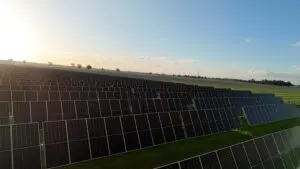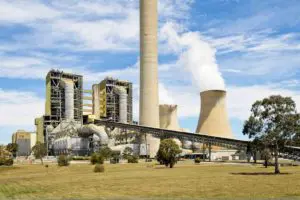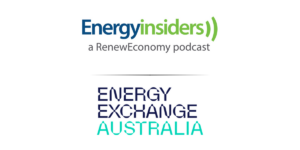In a week that started with a glimmer of hope on federal climate policy, things have very quickly gone south again, leaving observers in no doubt where the power lies in Conservative government decision making on climate and clean energy.
On Monday, the potential dumping of Abbott-era climate policies and the flagging of a range of new mechanisms, including an emissions intensity baseline and credit scheme for the electricity sector, suggested Malcolm Turnbull was finally having the courage of (some of) his convictions on climate change.

On Tuesday, the CSIRO and Energy Networks Association released a major national report reaffirming that a 90 per cent renewable electricity grid by 2050 was not only eminently doable, but could save the nation – and consumers – billions.
The report also put a lie to the conservative campaign against wind and solar, saying Australia could reach renewable energy levels in the high 90 per cent without compromising the reliability of the grid.
It should have provided ammunition for the Coalition’s campaign for cheap energy and security. The answer, the CSIRO and network report told us, lay not in coal or gas, but wind, solar and storage. And this in a week where Arctic ice levels have reached a record low for November.
Come Wednesday, however, the Coalition had performed a neck-breaking reverse backflip on any promise of a any sort of carbon pricing scheme, caving to pressure from the party’s defect chief minister, Corey Bernardi, who described it as “economic suicide” and like “ripping a scab off an old wound.”
“It’s ultimately up to the Prime Minister,” Bernardi told 2GB radio. “He’s got to put a definitive statement out that says we are not going to have an emissions trading scheme.” Tick.
Then you have environment and energy minister Josh Frydenberg – who has been left looking rather silly after Turnbull’s rapid about face – simultaneously expressing hope that UNESCO doesn’t put the Great Barrier Reef back on the endangered watch list, while negotiating for his government to chip in half the costs of the $2.2 billion rail project connected to the giant carbon bomb that is Adani’s Galilee Basin coal mine and port.

Meanwhile, in Victoria, an example of what happens when governments don’t bow to pressure from Australia’s powerful fossil fuel lobby has started playing out.
The Australian reported on Wednesday that the Gina Rinehart-backed gas explorer Lakes Oil was suing the Victorian government for $2.7 billion damages over the state’s recently legislated ban on coal-seam gas exploration.
The paper said a writ was filed in the Supreme Court on Tuesday by Lakes, a junior gas explorer that is 20 per cent owned by Rinehart’s Hancock Prospecting.
Lakes told the Australian Securities Exchange last night that the August ban on onshore exploration was unjust and unlawful, and that it had caused “significant losses to the company and its 11,000 longstanding shareholders’’.
The company is seeking $92 million for past expenditure on its exploration permits and more than $2.6 billion in “lost future earnings’’.
The company said its claim was based on a “fundamental legal principle that a party, having given a thing with one hand, is not to take away the means of enjoying it with the other.”
Interestingly, the legal move followed Monday’s “crisis meeting” between the nation’s top gas suppliers and federal industry minister – and former environment minister – Greg Hunt in Melbourne.
Hunt, who has described state bans on exploration as “negligent”, told the meeting that “blanket” moratoriums on gas fracking meant the country would face supply constrictions when there “is no shortage of supply”.
Monday’s meeting is to be followed by Friday’s Council of Australian Governments meeting where gas supply and prices will be part of broader discussion on energy security sparked by the South Australian electricity blackouts – another subject on which the Coalition has been vocal.








